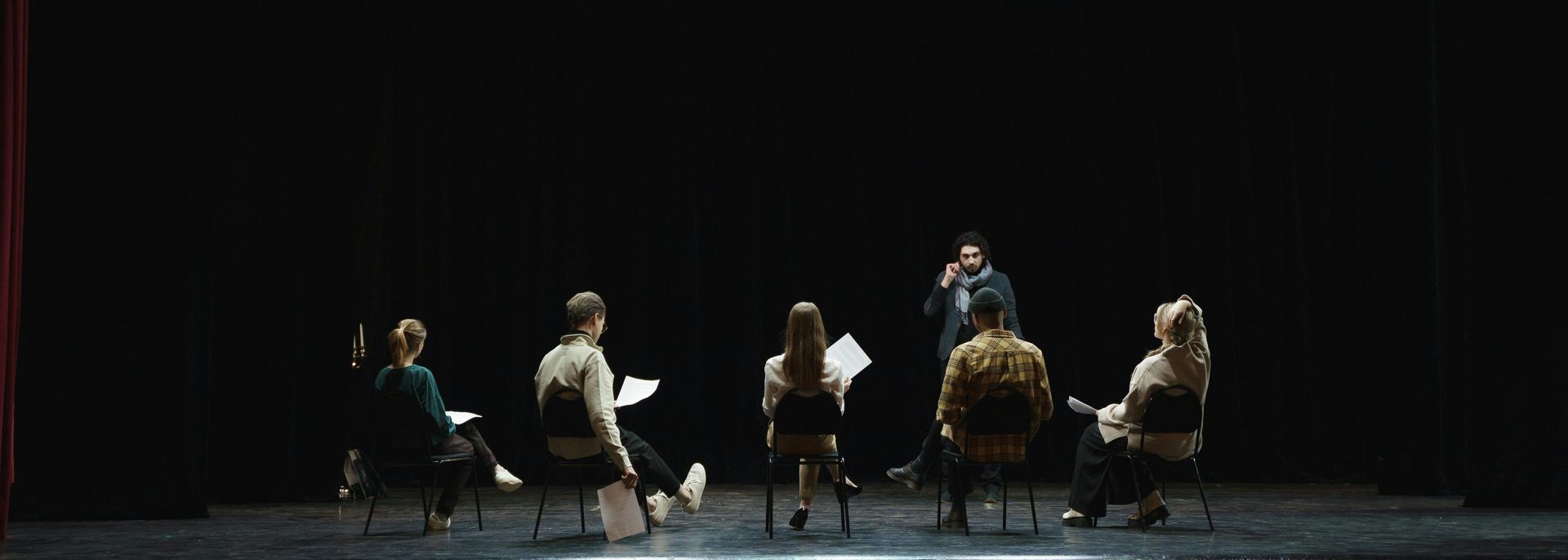Theatre Tax Relief – a Q&A with Friend Partnership
Theatre Tax Relief is a valuable, and often under-used, tool for theatre production companies. David Gillies, Head of Tax at Friend Partnership, provides an insight into how theatre tax relief works, the new changes from April 2024 and what production companies need to bear in mind to maximise the tax relief.
Theatre production companies can benefit from several tax reliefs offered by HMRC and significantly reduce their corporation tax bill or even result in a cash payment from the government.
What tax reliefs available to companies engaged in the creative industries?
There are a several reliefs available to those involved in the creative sector. HMRC has a separate department that is dedicated to creative industries, covering things like films, theatre productions, animation, video games and so forth.
Because so much is covered by this department, it is well worth businesses involved in the sector looking very carefully at the rules to see what benefits there may be for them.
What are the tax benefits that are available to theatre production companies?
There are two main benefits for theatre companies.
- Enhanced deduction for corporation tax: Production costs are eligible for a higher tax deduction than usual.
- Tax credit for loss-making companies: Companies can surrender their tax losses for a repayable credit from HMRC.
What tests does a theatre production company need to meet in order to be able to make a claim for Theatre Tax Relief?
As you might imagine, there are a host of tests that a company needs to meet, and it’s always imperative to look at the fine detail.
- The production must be an artistic work, like a play or opera.
- It should be a commercial venture aiming to make a profit.
- The production must be live and have a paying audience.
- It cannot be used for advertising, competitions, or involve wild animals.
- From 1 April 2024 at least 10% of core costs must relate to expenditure in the UK
- Prior to 1 April 2024 at least 25% of the expenditure must have been on goods and services from within the European Economic Area. For accounting periods that overlap these dates, separate computations will be needed.
- The production cannot be staged solely to gain tax relief.
- The company must be responsible for the entire production process.
What costs can a theatre production company include in its claim for theatre tax relief?
The relief is designed to deal with pre-production costs. Pre-production costs like auditions, set design, writer fees, and royalty payments. Recasting costs after the first performance are also included.
The running costs of the production are excluded from the Theatre Tax Relief rules and cannot feature as part of a claim.
These running costs include legal costs, accountancy costs, storage costs, or anything to do with the ongoing running of the production.
It’s very important for companies to look at their accounting systems to make sure that they can capture the costs in the right pots; HMRC will look very closely to make sure that everything is dealt with correctly.

Occasionally a production company will need to recast after the first performance, can those costs be included?
Yes, they can. If a production needs amending after its first viewing or staging and the company incurs costs for recasting then those costs can be included.
Can you tell me how the Theatre Tax Relief claims are calculated?
- The calculations are complex but involve estimating the production's total income and apportioning costs and income to different accounting periods.
- This results in an 80% uplift in qualifying costs as an additional deduction in the corporation tax computation.
It’s very important that the production company can identify costs and also come up with a sensible forecast for the outturn for the production.
With the calculations, the company will have an uplifted corporation tax deduction of 80% of the spend. This means if they spend £100 on preproduction costs, another £80 will be deductible in their corporation tax computation, giving that company a saving of 25% of the 80% as an additional deduction – a sizeable tax benefit for them by going down this route with the Theatre Tax Relief rules.
Is there an upper limit in terms of Theatre Tax Relief?
It’s all about how much the company is spending on the qualifying costs. There is no upper limit, so it can lead to some very material tax savings for the company involved.
Can a production company get cashback from HMRC?
Yes it can, and this is one of the big attractions of the Theatre Tax Relief rules. If a production company has tax losses, it is able to surrender those losses for a payment from HMRC. The amount of the payment will depend on whether or not the production is touring or non-touring. For non-touring productions, 45% of the losses can be claimed back from HMRC, and that percentage rises to 50% for touring productions. From April 2025, these will reduce to 40% and 45% respectively.
Touring productions are, essentially, those that are either staged in six or more different locations or at least 14 performances staged in two locations. The loss that the production company is able to surrender is the lower of the tax loss for the period or the enhanced deduction. The company will need to look at those two figures to see which is the lower figure, and that is the figure that can be used for the purposes of the tax credit claim.
How long does it take to receive the tax credit from HMRC?
We have had claims for theatre productions that we deal with coming back within three or four weeks, which is pretty good in anyone’s book. At the moment, I believe the timing has gone out a bit to six to eight weeks – even so that is still pretty quick. It’s very important for the production companies as cash may be tight, and any amount they can get back from HMRC would be very welcome.
If I’m thinking about making a claim for theatre tax relief, what do I need to do?
What a company needs to do is to be able to identify the qualifying costs. It’s accounting systems need to be able to split the cost between those that qualify and those that don’t, because they are running costs. In addition, the company needs to be able to forecast. It must prepare a forecast for the production’s total outturn. It also needs to ensure that it is working with professional advisors who fully understand the rules and can make the appropriate claims on the company’s behalf.

As a Theatre Tax Relief specialist, how do you go about making a claim?
- The claim is made as part of the company's corporation tax computation. It cannot be made in isolation as it is not possible to just submit a theatre tax relief claim to it
- Companies should ensure their accounting systems can separate qualifying and non-qualifying costs and prepare a production forecast.
- Using professional advisors familiar with the Theatre Tax Relief rules is recommended.
Can a company go back to earlier productions if they haven’t made a claim for Theatre Tax Relief?
Yes, they can. This is something we have been advising on with a number of theatre production companies, where they suddenly realise that they haven’t made a claim and are wondering if they can now do so. There are strict rules with regard to how far back a company can go. They can only amend a return if it’s within a certain deadline. Typically, that will be 12 months from the date that the last return was filed. For accounting periods beginning on or after 1 April 2024, they can amend a claim up to 2 years after the end of period the claim relates to.
Who should a theatre company use to help them with their claim?
Typically, a company will go to their professional advisors, but I have been approached in a number of situations where the company’s advisors or the company itself are not familiar with the rules, and they need someone with the experience to enable them to get a claim across the line. We are more than happy to work with businesses if they want us to deal with their Theatre Tax Relief claim even where we have no previous connection. We have plenty of experience and can bring that with us to any number of different situations.
What planning would you recommend a company does before a production starts?
The most important aspect for any theatre production company is that it can identify the costs that are relevant for a claim and prepare the necessary forecast. It sounds simple, but it’s a very important first step.
Secondly, companies need to look at their accounting periods. If there is a short production run, for instance if it’s only running for two or three months, it’s very important to think about the company’s year-end for that production.
It is always advisable, and if possible, to have an accounting reference date shortly after a production ends so that the accounts can be prepared and the computation submitted in very short order to reduce the time between the end of the production and the tax being paid, or the tax credit coming back to the company.
In addition, if the production company has a production that’s going over a number of months, or even a number of years, they also need to look at the accounting reference periods, to see whether there is anything to be gained by changing the accounting reference periods in the first few months of the production.
Are there any other changes to Theatre Tax Relief that come into effect from 1 April 2024?
Yes, from 1 April 2024, all claims will need to be submitted with an additional information form. The additional form requires you to provide the necessary evidence to support your claim.
Are Theatre Tax Relief claims worth the effort?
We certainly think that they are, and all the companies that I have dealt with in recent years and months have said exactly the same. There is a little bit of effort in making sure that the information is captured but, in cashflow terms, for a lot of those businesses, having material sums of money coming back into the company from HMRC has helped them tremendously. And even if the company is not in tax credit territory the reduction in the corporation tax bill as a result of the enhanced deduction is equally attractive. So, I personally think it is a win-win situation.
Who can I contact if I have a Theatre Tax Relief claim?
You can get in touch with our Creative Industry team here at Friend Partnership. We provide a complimentary initial consultation to all new clients for a discussion tailored to their individual needs. You can call us on 0121 633 2000, email us at enquiries@friendllp.com or alternatively complete the form below with your query.

Friend Partnership is a forward-thinking firm of Chartered Accountants, Business Advisers, Corporate Finance and Tax Specialists, based In The UK
Share this page:





